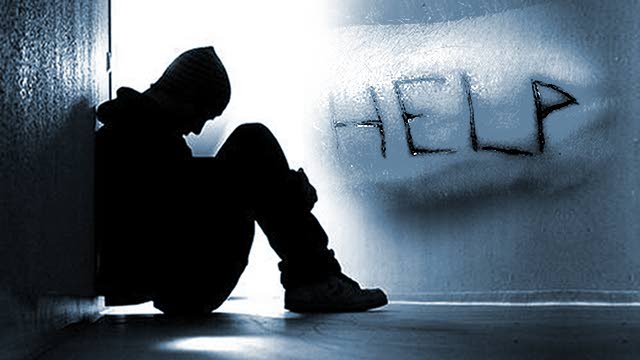Why I haven’t killed myself

COLIN ROBINSON
Anthony Bourdain and Kate Spade’s suicides had an impact I didn’t anticipate across my social network. Instead of comparing public responses to rich, successful celebrities to the lack of attention when ordinary people end their lives, or condemning policy neglect of psychosocial services across the Caribbean as criminal, young people took to social media to share their own struggles with despair. And with coping. Some were unbearably narcissistic. But, repeatedly, others told stories of survival, of finding someone somewhere in the desert. One friend, in his own words, has always “come off as jovial, as having a great sense of humour, as someone with a shiny personality.”
He shared: “I go to therapy every Wednesday at the clinic in Sangre Grande. I started because the voices in my head were becoming too much; I kept repeating a cycle of behaviour that was damaging to myself and the relationships around me; I wasn’t comfortable in my skin. It’s great to have someone I can confide in, who is impartial, and knows when to impart tough love or kindness. I’m getting the tools to cope, to live day-to-day, to not hurt friends and family, to exist in my truth. All this to say that there’s nothing wrong with seeking help.”
I kept going back to his post, re-reading it, and happy-crying. So too, he responded, was he.
I thought of Marcus Millette’s poem, how much we teach children to do just the opposite, how magical this young man’s resilient vulnerability and truthfulness are. I also couldn’t help but celebrate that someone in the public health system he didn’t name was responsible.
I’ve been reflecting since about times I, a generation older, have done the very things these young folks chronicled, struggled daily to not be inundated by hopelessness and a lack of self-worth. Money woes, I know, are my key trigger. My sense of competence crumbles the minute I feel financial discomfort. I’ve wondered if, besides ending beating children, something as simple as economic re-distribution policy might be key to solving much of the nation’s mental health crisis.
But another key trigger, I realised, is when public decision makers do and say needlessly spiteful things. When Kamla called for a referendum to allow straight people to overturn the courts’ recent decriminalisation of homosexuality. When Faris cleverly announced he would appeal and re-appeal the decision for years and promised his Government would have no position on homosexuality and the law, past the next election. The injustice of the system and the meanness of its gatekeepers are what make me feel a rage that surges into either apoplexy or self-harm. It makes me wonder whether it isn’t the same furious helplessness that fuels men’s violence against partners, mothers to beat their children into hospital, terrorism, jihad.
I puzzled about where my resilience comes from, though, why I’ve never pressed on the blade or swallowed the pills I save. And why, as I watched an alleged cyber stalker, an advocate for marrying children, and a man once charged with assaulting an altar boy, line up Monday to agree that the lives of those young people in my Facebook feed ought not to be protected from discrimination, how incredibly tone-deaf the timing was, yet what I felt wasn’t anger, but sadness and pity.
Was it the Anglican priest I gave my first confession who’d assured me homosexuality wasn’t a sin?
Where had I turned for help? I remembered the call with Clyde Harvey when I was “on a ledge,” how much his few words across a horrible connection from New York had mattered. I recalled stories from others in my generation of the extraordinary pastoral work Trinity Cathedral Dean Shelly-Ann Tenia has done with them. And I wondered why this simple solution to mental health has not had more impact.
I know how achingly I miss the work of faith in my life, Louisa Stead’s ineffable metaphor of resting upon a promise, Hebrews’ evidence of things unseen, the buoying of Martin Luther King Jr’s beloved community. How I treasure the men I’ve found online who when I am down offer to pray with me. I know how much homophobia has cheated me of these powerful supports, that institutional religion’s price of seeing myself as abominable or pitiful is far too high to pay for them.
Maybe that was why I was so sad. None of the young people in my feed mentioned faith. Not one. Indeed, when I’d engaged a different group about the upcoming clergy announcement, they’d proposed gathering around the Savannah with blasphemous signs to call out clergy abuses.
The trust that faith is just, and always protects the vulnerable, is why our Equal Opportunity Act makes Equal Opportunity Tribunal lay assessors people of faith. One of them, Leela Ramdeen, was very present at Monday’s faith leader unification to exclude LGBTI people from the Act. A judge who did that would have to resign.

Comments
"Why I haven’t killed myself"